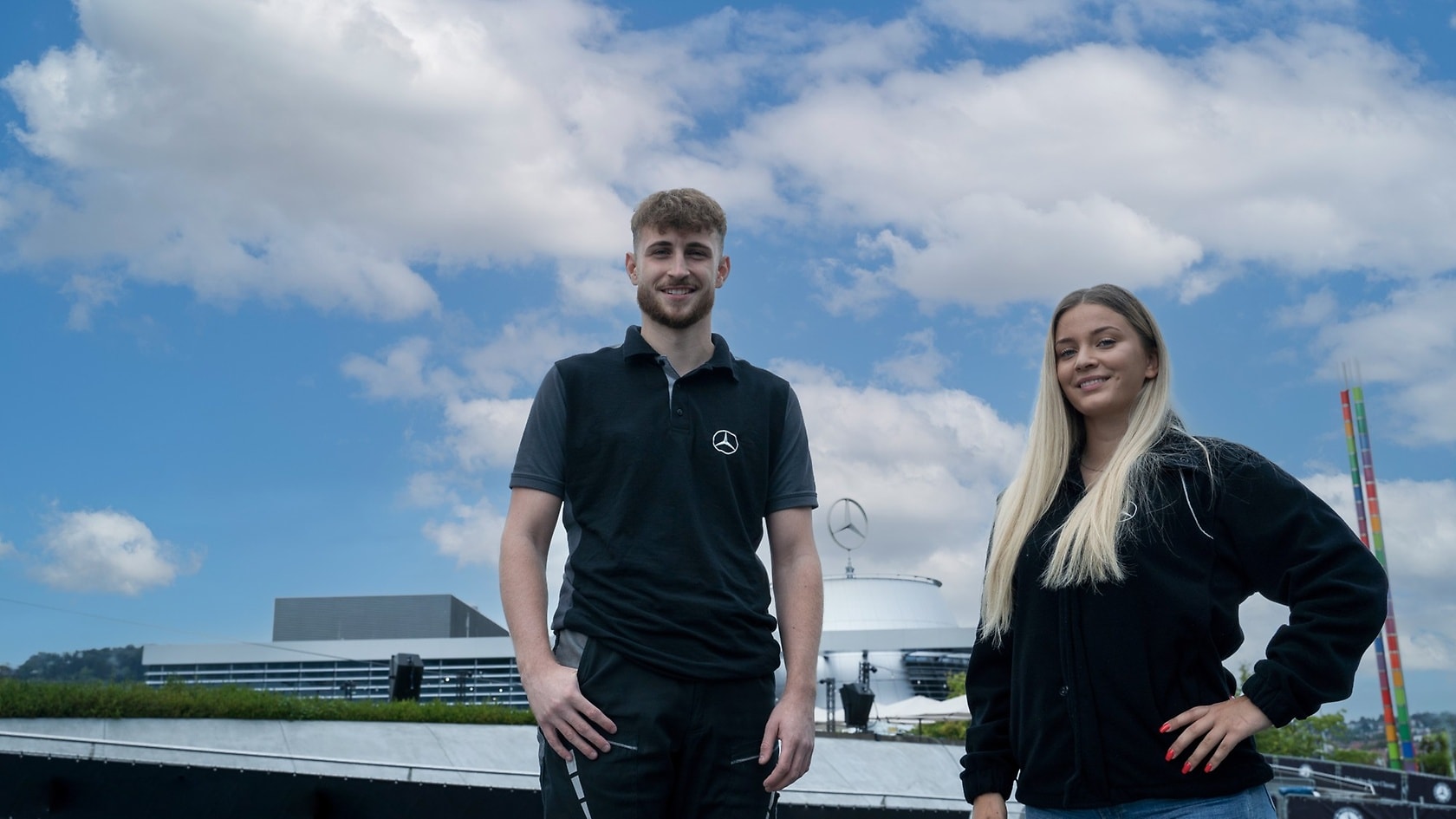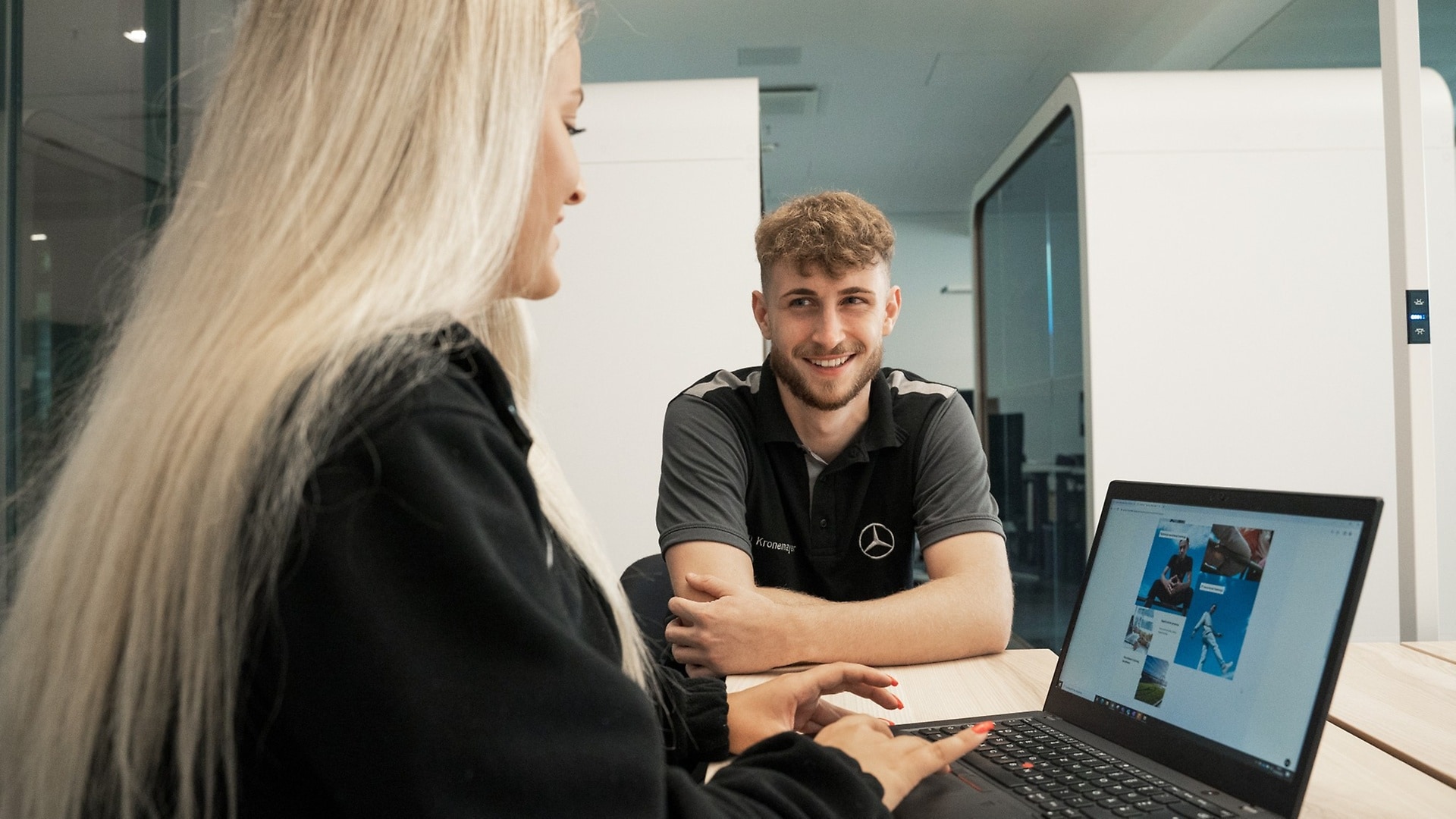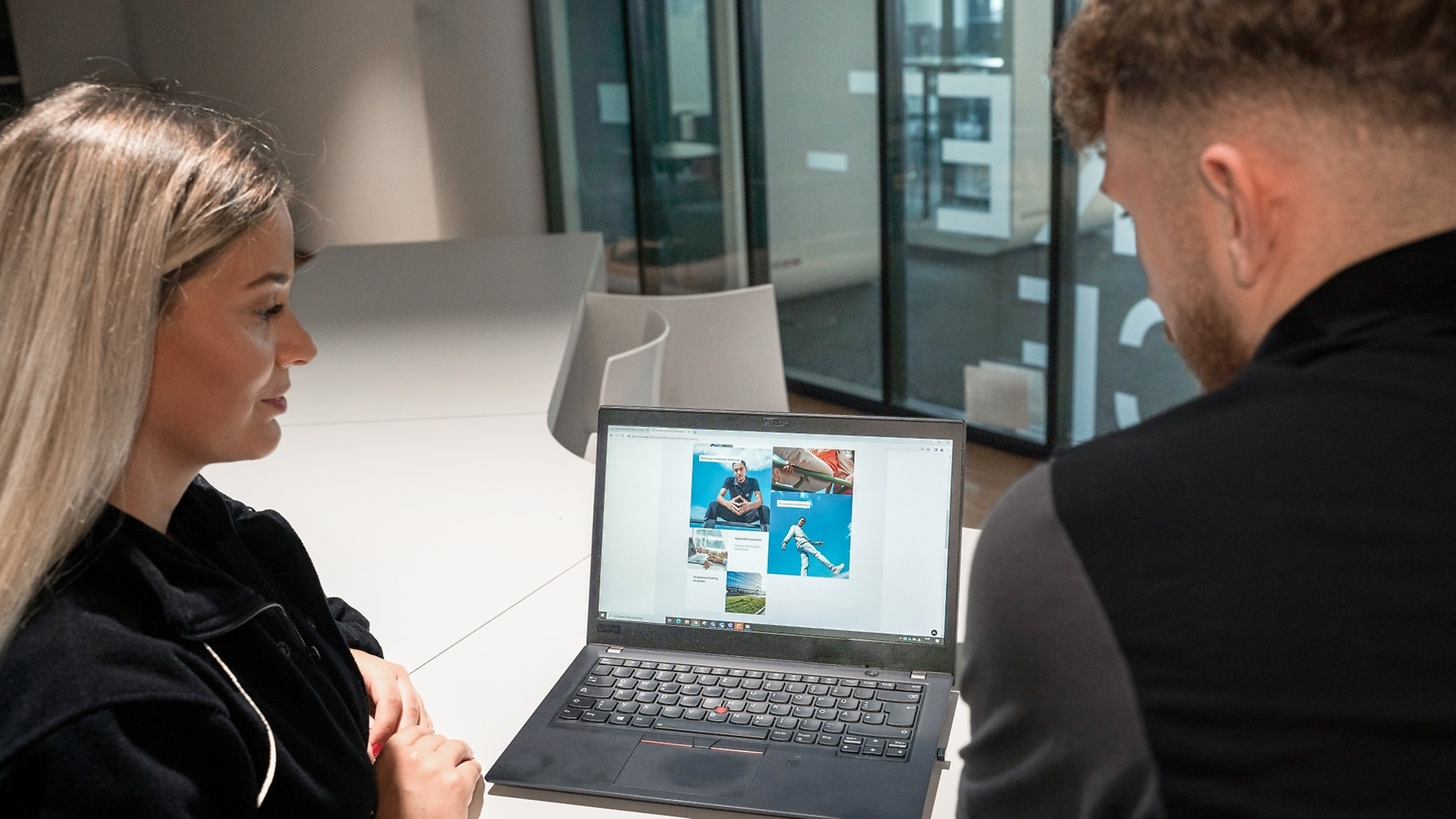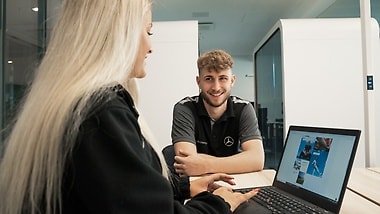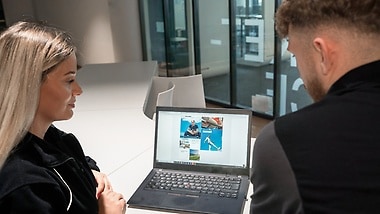How might we envisage the structure of your training, both at the plant and at vocational school?
Lejla: We spent the first half of the year together at the Esslingen-Brühl training centre as a class that was made up of people from different training disciplines. This is where we received training from our trainer. But we also had a few training courses and tours of the plant. After that, our work placements started. For example, I'm in human resources in Sindelfingen right now. During our plant assignment, we are on-site for six months and have vocational school there for a fortnight every two months as well as the occasional training course. When I have finished my training at the plant, I will later have the chance to work remotely from home, even on a daily basis.
Sven: We are involved on a practical level from the very beginning: We usually work at the Mercedes-Benz Global Logistics Center Germersheim for four weeks, followed by a week at vocational school. During the first year of training, we were in up to twelve different units, where we were trained for a week and then allowed to work independently by the second week. In the second year of the apprenticeship, we also get to know some external locations like Offenbach and Ettlingen over a period of two weeks.
How are you finding working at Mercedes-Benz, within your year group, with the trainers, as well as in the specialist units?
Sven: In our year, the youngest trainee is 16 years old and the oldest is 25. Everyone gets along well regardless of the age difference. When you move from one unit to the next, you encounter new trainers. I was shown and given explanations in every unit I've worked in, so I always felt very welcome. No one is angry if you happen to make a mistake. We also have a monthly chat with our trainers, where they ask us how things are going, if everything is going well, or if there are any problems.
Lejla: I also find working in the specialist departments rewarding, and after six months I'm thinking: It's a pity I have to leave now! When we finished the three-month project I was working on during my plant placement, it was a real sense of achievement for me. Because the job I'm training for is not yet so well known, a lot of colleagues are keen to learn more about it. Some even ask me to show them the programming. I think it's great that as a trainee I am also able to teach experienced team members something new! It is a very respectful way of working together. I attend external meetings and get to experience all the facets of everyday work in the specialist unit. There is a lot of attention paid to my well-being as a trainee.
What do you think is important for Mercedes-Benz as an employer?
Lejla: The possibility of working abroad was something that excited me right from the start. But there are also lots of little things which are important to me: I think it's nice to be able to work flexitime. I can work more on one day and less on the next day if that is possible at work. I also really appreciate the canteen, the break room and the e-learning opportunities for personal development.
Sven: Personal development is very important to me. There are a lot of former trainees who have made a career in the company by becoming specialist trainers, forepersons, team leaders or site managers. That's why I also like the possibility of doing the advanced technical college entrance qualification. That means I have six extra hours of vocational school every week.
